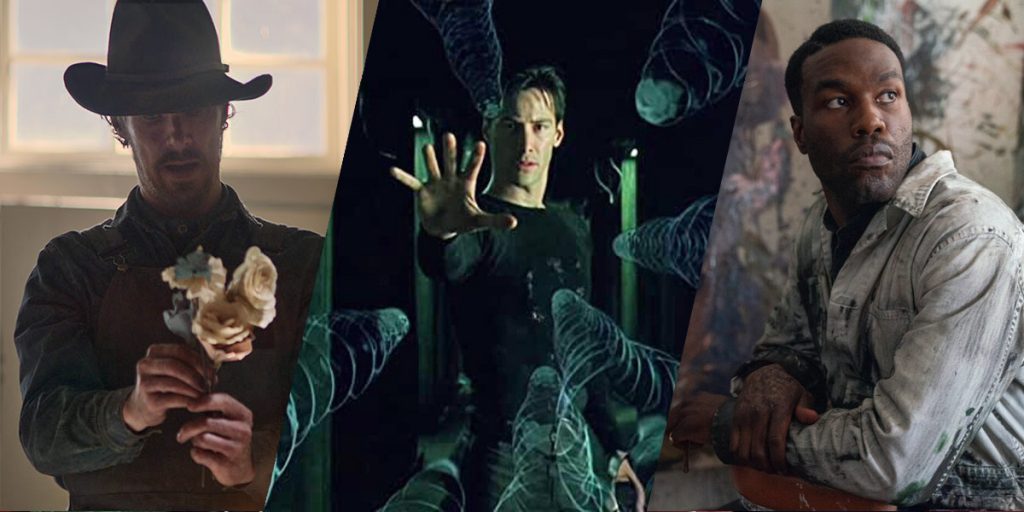Subtlety is important in film storytelling, but it’s not always as important as it’s made out to be, nor does a smaller amount of it always devalue a story.
“It’s a pretty literal approach. Not much room for viewer interpretation […]”
Candyman (2021)
“Okay, but how is it hitting you?”
Subtlety is a widely sought-after and crucial element of any story in the eyes of almost every audience member. It’s the method of saying something without actually saying it, delivering a message that has to be read into and searched for rather than be instantly clear. It’s the incredibly difficult art of a storyteller weaving their commentary and voice organically into their tale, presenting something deeper than what’s on the surface for those who can find it and leaving it out of reach for those who can’t. Subtlety in a story is so often celebrated, with critics and audiences throwing praise towards film whenever it’s used. I, however, don’t share such enthusiasm for subtlety. While I consider it to be generally important, I also believe it to not be as valuable as others do, and I don’t have any issue if, from time to time, a film or show is apparent in what it’s trying to get across.
I’ve thought about this quite a bit over the past couple of years, fueled by how often I see this subject brought up in entertainment reviews and discussions. There have been countless instances where I would see someone criticize a movie for not being subtle enough, and I would find myself struggling to understand why they consider that a problem and why I’m so opposed to giving such criticism myself. Now, it’s time that I lay out all of my thoughts on subtlety and explain why I believe it to be a tool that’s important, but not as important as many others believe.
SUBTLETY ISN’T ALWAYS REQUIRED FOR IMMERSION
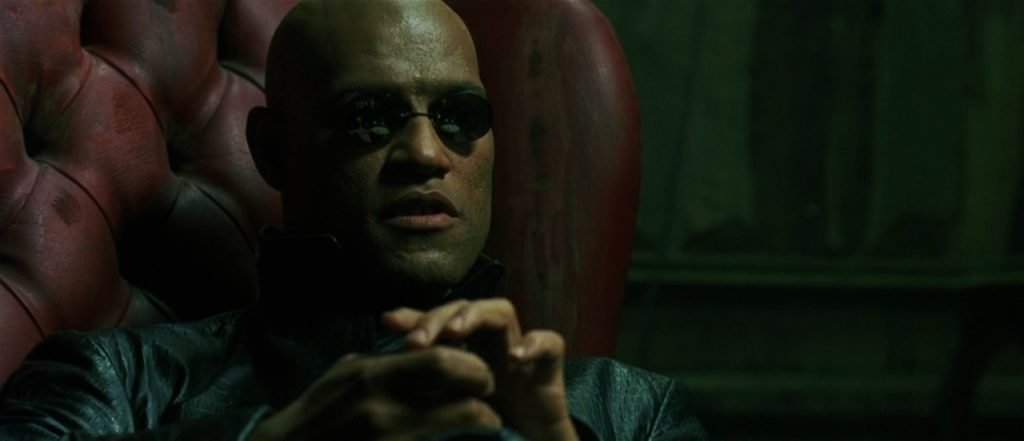
Now, clearly at least some subtlety is important and necessary. If a film had absolutely no subtlety whatsoever, it would be the cinematic equivalent of a PSA or a grade-school educational video. There would be zero ability to suspend your disbelief that what you’re seeing is a real, lived-in world with real people. Instead, you would see a story only for what it is: an artificial creation at the hands of actors, writers, and filmmakers. After all, film is storytelling. There has to be a layer of immersion into the fictional realm that’s been created, no matter how grounded in reality or fantastical that realm is. This applies whether someone is telling the story verbally or with the non-verbal means that film allows for. There are exceptions, like how Deadpool deliberately and constantly breaks the fourth wall for laughs, but these principles are all generally agreed upon and common knowledge for everyone, myself included.
But what if a film was able to keep that immersion completely intact while being more blatant about its themes? What if the acting, directing, visuals, writing, emotion, and themes – the major important elements that a film needs to get right to immerse a viewer – were all still strong even when subtlety was not always present? Look at The Matrix, the sci-fi classic about a man who learns his world is a simulation and must fight back against the oppressors who put him in it. The film is packed with very heavy-handed lines, like when someone refers to the main character as his “own personal Jesus Christ”, very clearly nodding to the chosen savior he’s destined to become. That’s to say nothing of the many speeches to and about the character in building him up as said savior. But none of that stops The Matrix from being a remarkably cool, revolutionary film that gave millions of viewers a lot to marvel over and think about, from its groundbreaking action to its intriguing characters to its multilayered philosophies surrounding a world that’s not what it appears to be. We take no issue with having those philosophies spelled out to us because we always have such a unique, exciting, satisfying experience watching the film.
And sometimes, when characters are put in particularly intense, challenging situations, it’s perfectly natural and even expected for them to discuss bigger ideas and motivations in a more direct, heightened manner that you wouldn’t usually see in everyday life. Interstellar, which is about a former pilot on a dying Earth who sets off to find a new home for humanity, is sometimes criticized for how often its characters openly discuss their roles in the universe, what they’re motivated by, and their human nature clashing with what’s necessary for the greater good. But these people are on a mission to travel across galaxies and save the entire human race, while being thrown at the mercy of time dilation that ages their families on Earth far faster than them. These circumstances are so extreme and dire that I would find it odd of these characters didn’t have such blatant, in-depth discussions. The film would be less immersive in that case. Furthermore, the performances are fantastic, what the characters are fighting for is highly relatable, the sense of wonder and fear of space are captured perfectly, and the directing pulls everything together to make every word spoken sound believable and authentic. How is any of that compromised if a lot of what the film is saying is clear-cut? Unless a film feels like it’s stopping in its tracks to address the audience, such relatively minimal use of subtlety doesn’t hurt my immersion at all.
OVERUSED SUBTLETY CAN DAMAGE A FILM’S CONNECTION WITH THE AUDIENCE

Another benefit of subtlety that many bring up, and one that I agree with to a point, is that there is a joy in realizing something for yourself instead of having it told to you. This exercises your mind, keeping you from growing numb to the point where you don’t have to put any effort into interpreting something. After all, what fun would a puzzle be if someone were to tell you where every piece goes? It’s fun to pick up on things that some others may not have, or to hear someone else share an observation that you didn’t notice. As a result, our cinematic minds are enriched whenever they’re allowed to do the work. To this day, audiences love interpreting and analyzing 2001: A Space Odyssey, particularly the highly abstract ending that leaves all first-time viewers scratching their heads. Coming up with my own conclusion as to what happens at the end of that film, and then comparing that to others’ interpretations without any of us being definitively right, is something that couldn’t have happened had we all known for sure what the right answers were.
But it’s possible to push that notion to a point where the spontaneity of your experience watching a film is gone. By this I mean there could be too few instances where you’re able to pick up on something, and, as a result, the movie becomes less interesting while watching. When this happens, you have to reach so far to find the substance that you feel like you’re making up for the film not even trying to communicate with you. Or maybe you can’t buy what the film is saying because it comes across like it’s not committing to what it’s saying. This is what happened to me with The Power of the Dog. This Jane Campion western about a hostile man who moves in with his brother and new in-laws tries to explore its main character’s repressed sexuality and how that affects his outlook on another character. But all the hints to this repression went completely over my head when I watched the film, not because I wasn’t paying attention, but because they were so downplayed and so subtle that they came across as inauthentic. I didn’t feel any of what was supposed to be conveyed at all, because the film and performances hid it too well. It’s like trying to have a conversation with someone who’s just looking off into the distance and barely saying a word to you. Or when a loved one never says, “I love you,” because you should simply know through their actions, even though it’s still just a nice courtesy to say it every once in a while.
Of course, initial impressions of a film aren’t everything. Further examining art and allowing yourself to find greater appreciation for a film well after watching it play an important part as well. But I generally prefer when art wears its heart on its sleeve a bit more. It doesn’t have to do so and can sometimes go too far in that direction, but sometimes when a story tries to be so subtle, it comes across like it either is trying to hide its heart from you, doesn’t recognize the substance it has, or doesn’t care. I don’t need films to play so coy with us, at least not to the degree that a lot of people seem to demand. I place just as much importance on emotional resonance as intellectual resonance, and it is possible for one to be lost in favor of the other.
OVERUSED SUBTLETY CAN LIMIT POSSIBILITIES

In general, a film can be “too subtle” when it either compromises its quality to hide something from you or hides something out of obligation rather than because that’s what makes the storytelling better. In a lot of stories, especially in a genre like horror, it makes perfect sense to conceal information and not provide answers. But other stories do that just for the sake of it, and it dulls the impact as a result. To give an example, Denis Villeneuve’s film Enemy is about a man who comes across a successful actor who looks and sounds exactly like him, and the two end up lusting over the other’s wives. But every now and then, spiders of various sizes, ranging from normal to freakishly large, appear on the screen. Though I enjoyed the film a lot, I could not piece together why these spiders were there and what they were about. Someone then explained to me that spiders lure insects into their web to eat them, much like how the protagonist was caught by a woman’s “web” of lust. I responded that if this was the idea, a little more could have been done to get it across, like showing spiders actually spinning webs or entrapping the character in a dream sequence. The other person’s response was that this would be, you guessed it, not subtle enough.
I wholly respect this point of view, but, from my own perspective, this is a case where a film is so concerned with being subtle that it holds itself back from being as creative or memorable as it could have been. If Enemy just had ordinary spiders wandering around in the background without focusing on them, leaving their meaning so vague would be the more natural choice. But when there’s a shot of a spider the size of a skyscraper walking around, why not go all the way and do something more memorable and expressive with them? At that point, being so indirect with why they’re there is just subtlety for the sake of subtlety, eschewing an opportunity to do more simply because that might spell something out … even though the film is already spelling out that the spiders mean something. If I have to choose between subtle and memorable, I’ll choose memorable almost every time.
REACHING MORE PEOPLE ISN’T A BAD THING
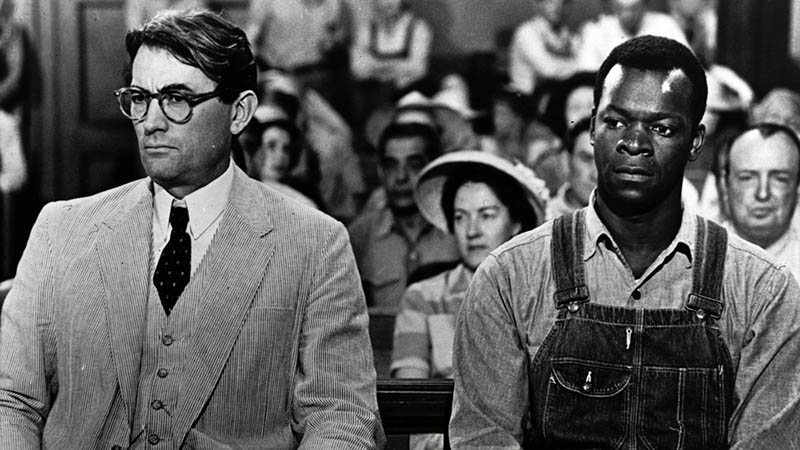
When a supposed lack of subtlety is brought up, directors often get criticized for not trusting or respecting their audiences by making things too obvious for them. Yet has anyone ever considered the possibility that it’s the opposite case: that it’s because directors don’t have faith in themselves? Keep in mind that, almost always, the meat of a writer’s or director’s work is the most obvious to the writer or director themselves. And with that could very well come a fear that they only see it because the work was made by them, and that the audiences who can’t see inside their heads have a much greater disadvantage. Or maybe the creators are just trying to accommodate for as many different eyes as possible – not different levels of intelligence, but different perceptions and ways of examining art.
People see the world in countless different ways, and therefore they could perceive any one piece of art in countless different ways as well. Similarly, different filmmakers will see their own work as different levels of understandable. If you were writing a screenplay or directing a movie, wouldn’t you have that fear at least to some degree, especially if you planned on having your work seen by a wide audience? And is it really such a bad thing to try and help as many people as is feasible to understand what you’re trying to do? Yes, we’ve seen terrible cases of films that tried to please everyone and therefore pleased no one, like 2017’s Justice League responding to the complaints of past DCEU films (which were criticized for being too dark and humorless) by forcing a lighter, fluffier tone, at the cost of Zack Snyder’s initial vision . But going out of one’s way to make something harder to understand seems just as counterproductive as going out of one’s way to make it easier to understand.
There’s nothing inherently wrong with a film trying to get more people to catch its meaning. Accessibility and high art are not mutually exclusive. There is absolutely such a thing as going too far with this, and there are many films that will never, and should never, please everyone. But if a film can get away with doing so without compromising its artistic vision, I don’t see the harm in that. Even if you don’t like that style yourself, consider that it could help less experienced filmgoers who aren’t used to reading so deeply into a film ease their way into more subtle works, like a gateway of sorts. That’s been the case with me, as there are films and shows that I initially couldn’t get into, but I grew to appreciate them more after years of more experience with examining art and stretching myself. I didn’t think much of To Kill a Mockingbird when I first saw it as a high school freshman, but watching it years later opened my eyes to more understated layers, like how Atticus, a lawyer defending a falsely-accused black man, must reconcile his daughter’s innocence with the cruelty of humanity. He has the unenviable role of being a parent trying to navigate his child into understanding how unjust life can be. None of that was stated out loud in the film, so I needed a more seasoned eye to pick up on it.
THE BALANCE BETWEEN SUBTLE AND OBVIOUS
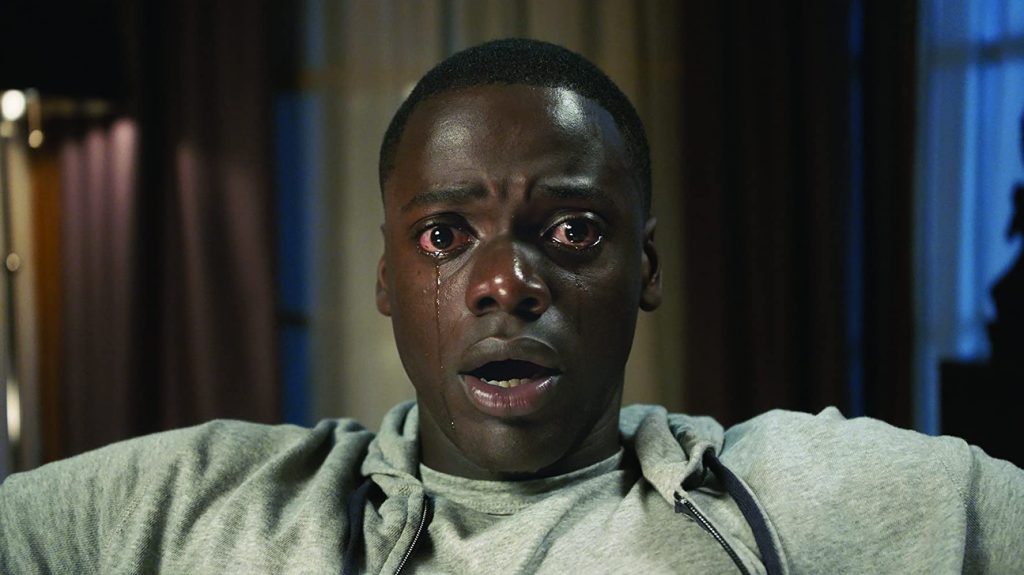
I’ve noticed that if a movie is unsubtle or “too obvious” in some places, many filmgoers will then generalize the entire film as not having any subtlety throughout, not giving due credit for where it is subtle. I guess the logic may be that the film has clearly made no qualms about showing its cards in certain scenes, so why would it try to hide them elsewhere? Whatever the case, this happy medium between subtle and obvious is my own personal sweet spot that I most prefer, because it provides me with the best of both worlds: being able to grasp onto a film’s main concepts or ideas right away, yet still having the joy of discovery. I immediately know at least part of what the film going for and can therefore make an instant connection. But because it still keeps a lot of the smaller, more discrete character traits and themes less upfront, I still get the pleasure of realizing them myself through deeper thought, repeated viewings, and reading the differing interpretations of others.
Take Get Out, for instance. This horror film about a black man who meets his white girlfriend’s family makes no efforts to hide its commentary on white people’s obsession with race. Even the smallest microaggressions made against him by the family are very blatant. But within that is still plenty that goes unsaid, like how the main character never really makes a fuss over the offensive comments thrown at him. I took this to indicate how much he’s dealt with this sort of thing throughout his life and therefore conditioned himself to tolerate it. Or he could just be an easygoing person, or he may just want to make a good impression on the family. The film allows for that kind of varied interpretation despite how obvious and easy-to-grasp its broader story is.
In fact, having something be more blatant could allow a higher number of viewers to more easily catch other details that are more hidden. It allows them to know what to look for thematically with this guide and reference point, while still letting them look around further and have their minds exercised. I’ve had this happen to me: I’d watch a movie or show, not really grasping its intents, but as soon as I’d reach a certain scene or even just a certain line that unambiguously lays out a big idea, I’d suddenly look at everything beforehand with a newfound excitement that the story was setting more up in the smaller details than I had thought. Throughout the initial stretch of Knives Out, I saw it as just a twisty murder-mystery story about the sudden death of a family patriarch, and the chaos surrounding how it happened and who was involved. But then a scene pops up where the family of the supposed murder victim is debating the rights of immigrants in America, partially revolving around our illegally-immigrated main character. With the introduction of these topics, I suddenly started noticing the parallels of the family’s entitlement and need to remain above the main character to the white privilege plaguing America. Had this very direct scene not been included, I may have gone the rest of the film, or at least a much longer portion, not seeing any of those non-explicit parallels. Being “a little on-the-nose” without going too far is merely a way of nudging a viewer in the right direction without fully holding their hand, striking that balance between the mind and the heart that I always want in any story.
INSULTING THE VIEWER’S INTELLIGENCE?
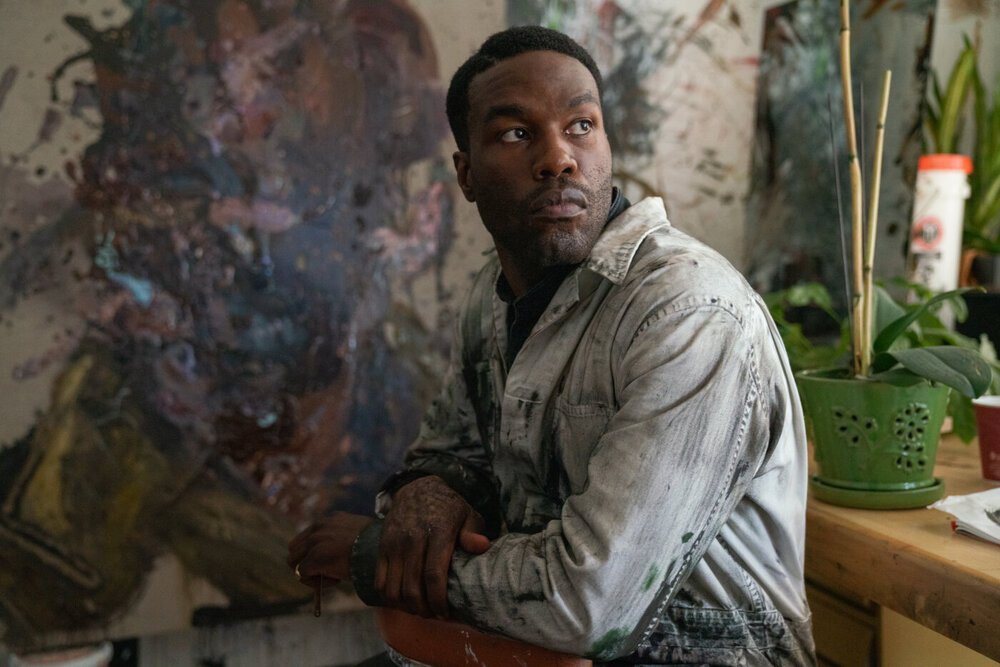
There’s a very commonly seen argument that a film’s supposed lack of subtlety “insults viewers’ intelligence”. And yes, there are some instances where the hand holding is so blatant that I, too, see it as cynical pandering, whether intentional or not. Some of M. Night Shyamalan’s worst work is littered with blatant commentary that’s as unneeded as it is forced, like how Lady in the Water has Shyamalan himself play a writer whose works are destined to change the world. But other times, I believe the utterance of the phrase “It insults viewers’ intelligence” is itself an insult to viewers’ intelligence, because I’ve seen the complaint come up during the discussions of several films that I don’t think are that on-the-nose. In fact, in a few instances, these remarks have been made towards something I may have missed had it not been made more explicit in the film.
The most recent instance of this for me was the 2021 sequel to Candyman. When I saw the 1992 original Candyman, which revolves around a graduate student who’s haunted by the titular urban legend killer, I didn’t see the social commentary that so many other people have seen. There were drops of it in there, but not enough for me to understand the point of Candyman himself. But then, when I saw the 2021 sequel, it finally clicked: he’s the embodiment of cyclical violence that’s relegated to a gentrified community. The reason this was clearer to me here isn’t because I wasn’t smart enough for the original, but because the sequel focuses more on the community that’s relevant to the purpose of Candyman. Therefore, more upfront conversations with the characters themselves about issues like gentrification and racial violence are warranted. Does this mean I’m a mere simpleton who doesn’t know how to properly analyze basic cinema? Or does it mean that the sequel was making more meaningful and effective use of its motifs and symbolism, which therefore made it more noticeable?
But if you still think that I should have simply been paying closer attention to the original Candyman, let’s look at a reverse situation: when I noticed something in a film that others did not. When I first saw the movie Predator, I brought up how I interpreted the film to be poking fun at extreme masculinity by having these buff dudes be scared and helpless against an alien who hunts for sport, which itself is a stereotypically masculine trait. Someone commented that they hadn’t thought of this before, and they considered the film to have more to it than they initially had credited it. Now, what if I had originally said that the film “respects its audience’s intelligence” by making this point subtly? Wouldn’t that have implied that this commenter didn’t have such intelligence? Wouldn’t that come across as at least a little pompous of me?
Additionally, let’s say that every single person saw what I saw in Predator … would we then still be able to call the film subtle? Or does subtlety, by its very nature, require some people to not pick up on something like that? If so, what does that say about those who claim that audiences should be smart enough to do so? Shouldn’t such a blanket statement indicate that the film in question is not actually subtle? It’s such a complicated discussion because of how much variation there is in not only what different people can and can’t perceive, but where different people place the line between subtle and obvious. Just because an audience member fails to catch a visual motif or hidden meaning, that doesn’t always mean said person isn’t smart or paying attention.
INCONSISTENT COMPLAINTS

I think a lot of people have a mindset more similar to mine more than they’re willing to let on, or maybe more than they realize. The many criticisms of unsubtlety I’ve come across are not only sometimes unwarranted, but inconsistent between films. I can name plenty of movies that frequently make their intentions loud and clear to the audience through dialogue and/or blatant imagery, and not once have I heard a single person call foul in response. One of Jurassic Park’s most famous scenes is when scientist Ian Malcom breaks down what makes a theme park of living dinosaurs such a bad, dangerous idea, and how park creator John Hammond is playing with and selling natural phenomena beyond his comprehension. Malcom is unambiguously spelling out the film’s primary cautionary message here. Considering how much people love subtlety, how does that not bother anyone?
Furthermore, Parasite, a South Korean film about a poor family who schemes their way into employment by a wealthy family, is one of the most acclaimed and beloved films of the past ten years. Yet it has multiple instances of characters outright stating a major takeaway of the movie. “They’re nice because they’re rich,” referring to how one’s morality is defined by their class status. “The best plan is to have no plan,” referring to how circumstances and systems beyond one’s control overpower any plan. “It’s so metaphorical,” which refers to a rock that’s meant to promise wealth and literally points out that it’s a metaphor for empty hopes and dreams! Why have I seen no one criticize these bits for being too on-the-nose? I myself have no issue them, but to see no one point out a lack of subtlety here while other films are being derided for using the exact same tactics, doesn’t make any sense.
On the opposite end, there’s 1917, a World War I film in which a soldier must travel through enemy lines to deliver an urgent message to call off a doomed attack. I’ve stated that this film has a good deal of depth and development for its main character, but it’s just not very upfront about it. Yet I’ve seen plenty of people say he has nothing to him, and the film is only great in its technical achievements, even though the characterization is done in the exact same subtle manner they keep clamoring for. People get the subtlety they want, yet, instead of praising the film for it, many write off the characterization entirely. I’m not saying anyone is wrong to say there’s no depth – I disagree, but that’s still subjective – but this further goes to show how inconsistent the demands for subtlety can be, and how it really seems that many people only praise subtlety when they pick up on the meaning or motif of a film. Or maybe these detractors genuinely don’t believe any substance to be there in such cases, also a fair opinion. But had 1917 made that substance more blatant, would it then receive more praise, or would it be criticized for a lack of subtlety?
What is the cutoff? I’d say it might be a matter of execution, but many who criticize a lack of subtlety usually take issue with the explicit statements of the ideas in and of themselves, not so much how they’re being explicitly stated. The only explanation I can surmise is that, going back to Parasite, that film has memorable characters and engaging development of their stories, to the point where the audience is focusing more on how enjoyable those aspects are rather than how blatant the themes and hints are … which is exactly what I stated earlier as a reason I’m not bothered by a more minimal use of subtlety. So, when you find a film’s information to be too direct or on-the-nose, ask yourself if what you really take issue with are the narrative, characters, and directing through which the information is being conveyed.
THE NUANCE OF SUBTLETY
The demand for a work of art to be more or less subtle isn’t as simple as so many critics and moviegoers make it out to be. It’s a difficult issue to grapple with, whether you’re a filmmaker telling a story or a viewer absorbing a story. Yes, some degree of subtlety is almost always important, and yes, there is such a thing as not being subtle enough. But a relatively smaller amount of subtlety isn’t always wrong either. In fact, it’s sometimes the preferable choice and can elevate a film instead of devaluing it. The golden rule of cinema is “Show, don’t tell.” But maybe there’s still just as much value to a film that sometimes decides to show and tell.

